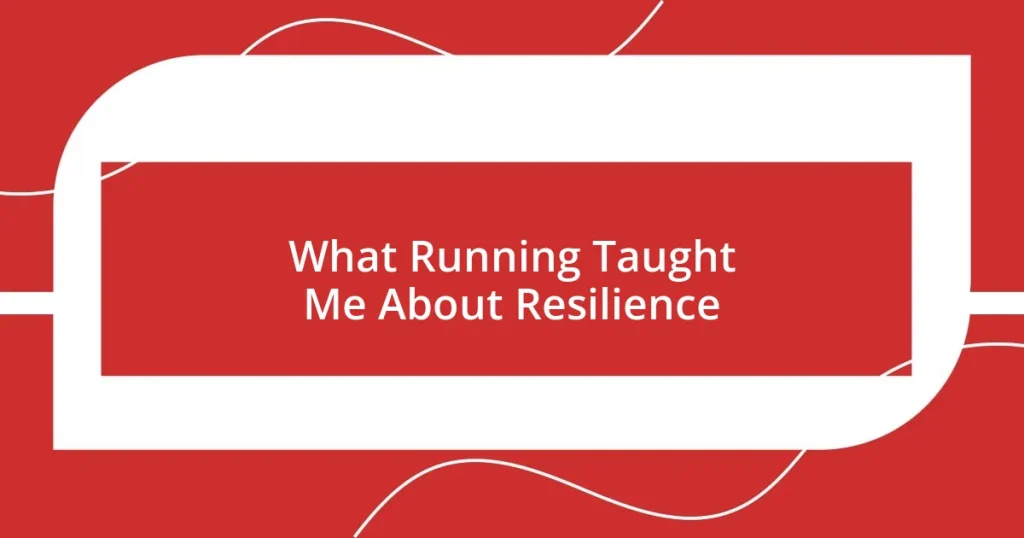Key takeaways:
- Running without music enhances awareness of surroundings, body sensations, and mental clarity, fostering a deeper connection to nature.
- Mindfulness techniques such as breath synchronization, sensory awareness, and gratitude practice transform running into a meditative experience.
- Strategies for overcoming distractions include setting clear intentions, utilizing pre-run visualization, and accepting distracting thoughts to improve the running experience.
- Tracking progress through apps and journaling provides valuable insights into performance, mental states, and helps set meaningful goals.
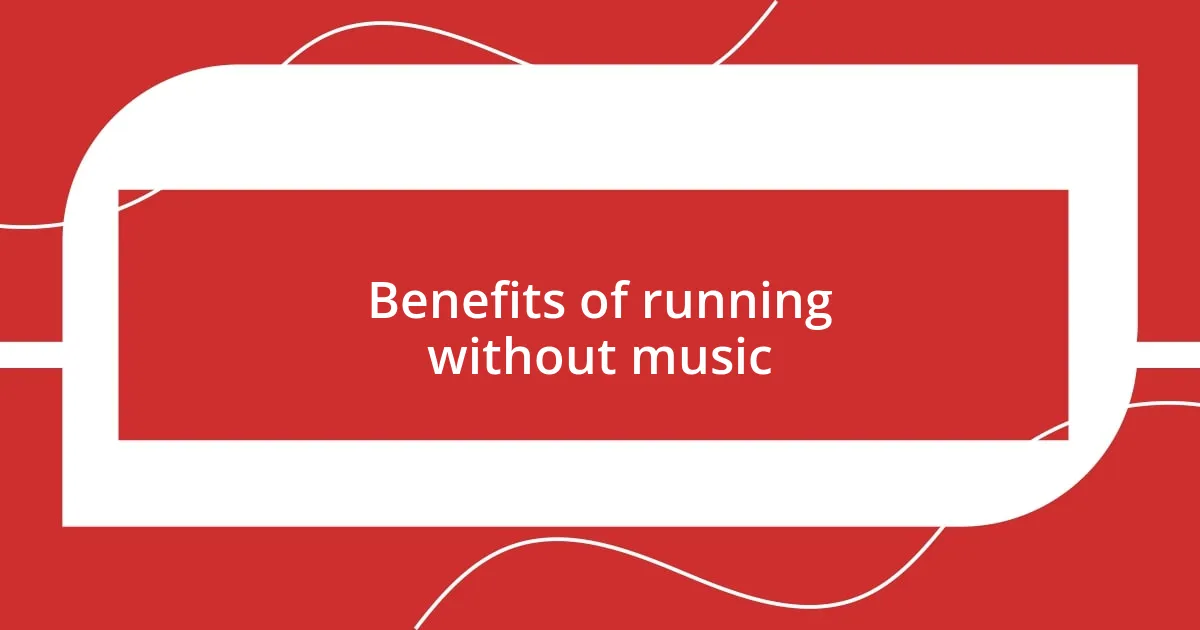
Benefits of running without music
One of the most surprising benefits of running without music is the way it deepens my connection to my surroundings. I remember one chilly morning jog when I decided to leave my headphones behind. The rustling leaves, the crunch of gravel under my feet, and even the distant chirping of birds created a symphony that no playlist could replicate. Have you ever discovered that nature has its own rhythm?
Running in silence also allows me to listen to my body more closely. Without the distraction of beats or lyrics, I become more aware of how my muscles feel and how my breathing changes. This heightened awareness can be invaluable, especially when training for a race or trying to prevent injuries. Don’t you find that sometimes, being in tune with yourself can make all the difference?
Moreover, the mental clarity that comes from a music-free run is invigorating. I often use this time to reflect on my day or brainstorm ideas for projects. In those moments, I find a sense of peace that’s hard to achieve in the hustle and bustle of everyday life. When was the last time you paused to let your thoughts flow freely while on a run?
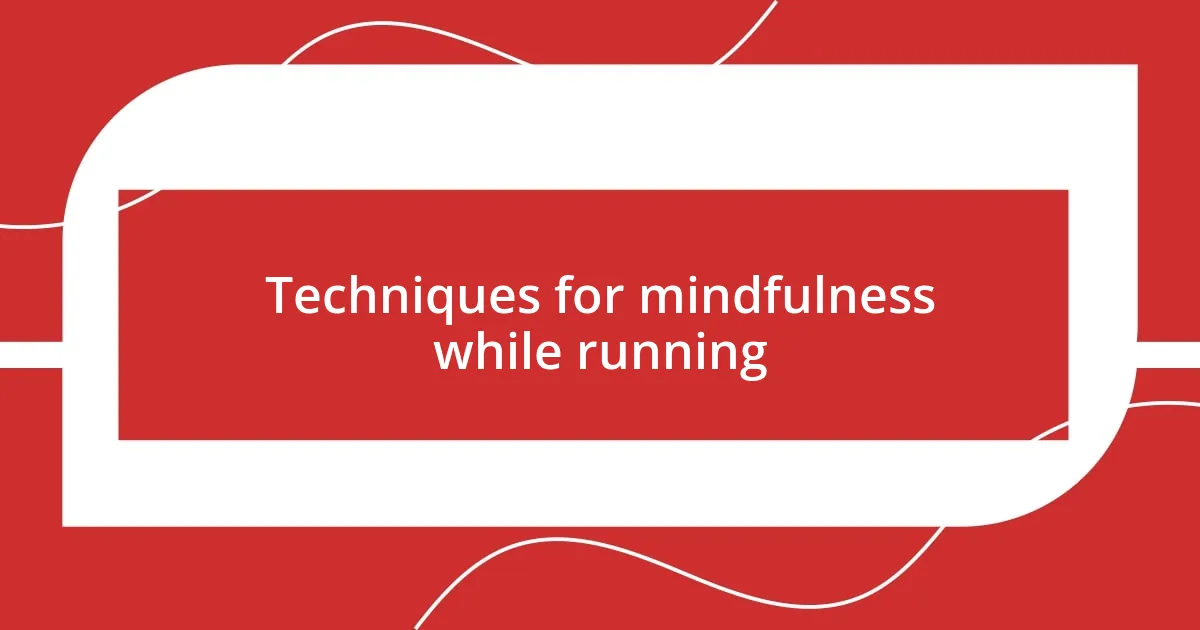
Techniques for mindfulness while running
Running without music can become a profound meditative experience when practiced with mindfulness techniques. One technique I often use is focusing on my breath. As I run, I consciously match my breathing to my steps, inhaling for three steps and exhaling for two. This simple rhythm draws my mind away from distractions, anchoring me to the present moment. Have you ever tried synchronizing your breath with your movement? It can truly transform the way you perceive effort and fatigue.
Another technique I embrace is a sensory awareness practice. I make an effort to notice the sights, sounds, and even smells around me. Recently, while running along a path lined with pine trees, I became aware of the subtle scent of pine needles mixed with damp earth. It was as if my senses awakened, and I felt more alive than ever. This approach not only enhances my appreciation for nature but also grounds me, providing a mental break from the noise that usually fills my mind.
Incorporating gratitude into my runs has also been a game changer. I take a moment during my run to appreciate my body for its capabilities and the opportunity to move. It shifts my mindset from focusing on pace to celebrating each step. Have you ever thought about what you’re thankful for while you run? This practice can cultivate a positive mindset that stays with you long after your shoes are off.
| Mindfulness Technique | Description |
|---|---|
| Breath synchronization | Matching breath to footsteps to anchor attention in the moment. |
| Sensory awareness | Focusing on surroundings, enhancing appreciation of nature. |
| Gratitude practice | Reflecting on what to be thankful for during the run. |
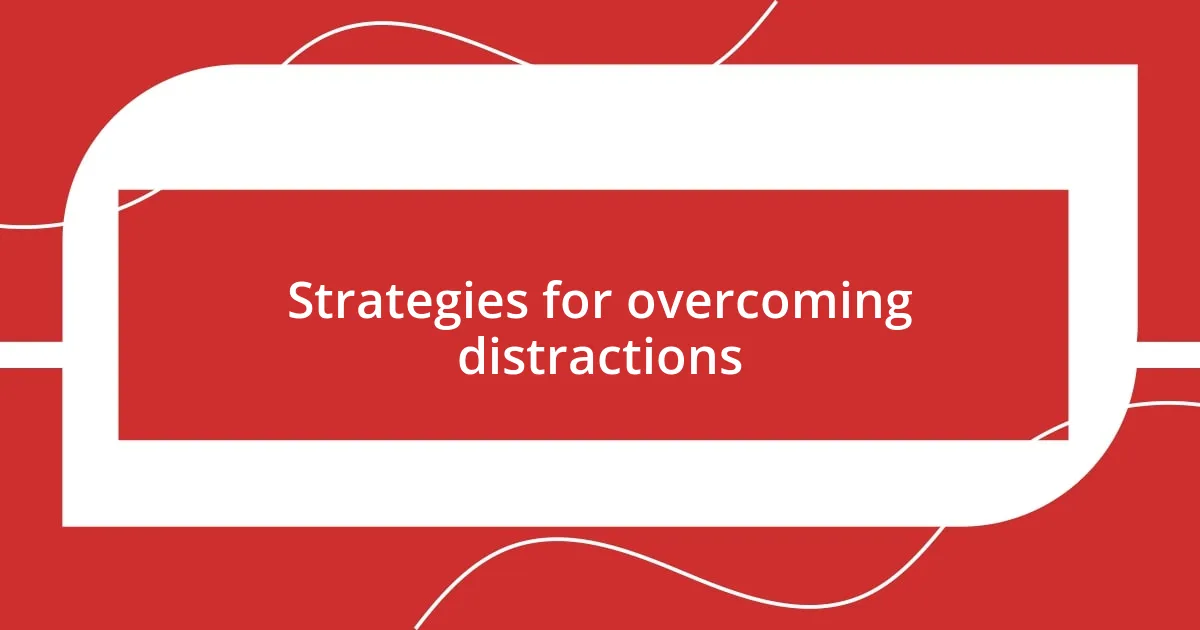
Strategies for overcoming distractions
When it comes to overcoming distractions while running, one strategy that’s proven to be effective for me is setting clear intentions before my run. I make a mental note of what I want to focus on—whether it’s my pace, my breathing, or even just being present in the moment. This proactive approach helps me ignore the chatter in my mind. Have you ever tried articulating your goals before stepping out? It helps create a sort of mental framework.
Here are a few more strategies to consider:
- Pre-run visualization: Picture your route in detail; this can help keep your mind on track.
- Chunking your run: Break your distance into manageable segments and focus on one segment at a time, letting you stay present.
- Mindful mantras: Repeating a positive affirmation or mantra can drown out distracting thoughts and motivate you.
During one of my longer runs, I realized that managing distractions wasn’t just about fighting against them, but also accepting them. I remember a stretch where my mind was racing with to-do lists and worries. Instead of pushing those thoughts away, I acknowledged them. “I see you, but right now, I’m here for my run.” Giving myself permission to think but choosing not to dwell changed the entire experience. It can be surprisingly liberating to accept and then let go. Have you noticed how acceptance can sometimes ease the pressure to perfect your run?
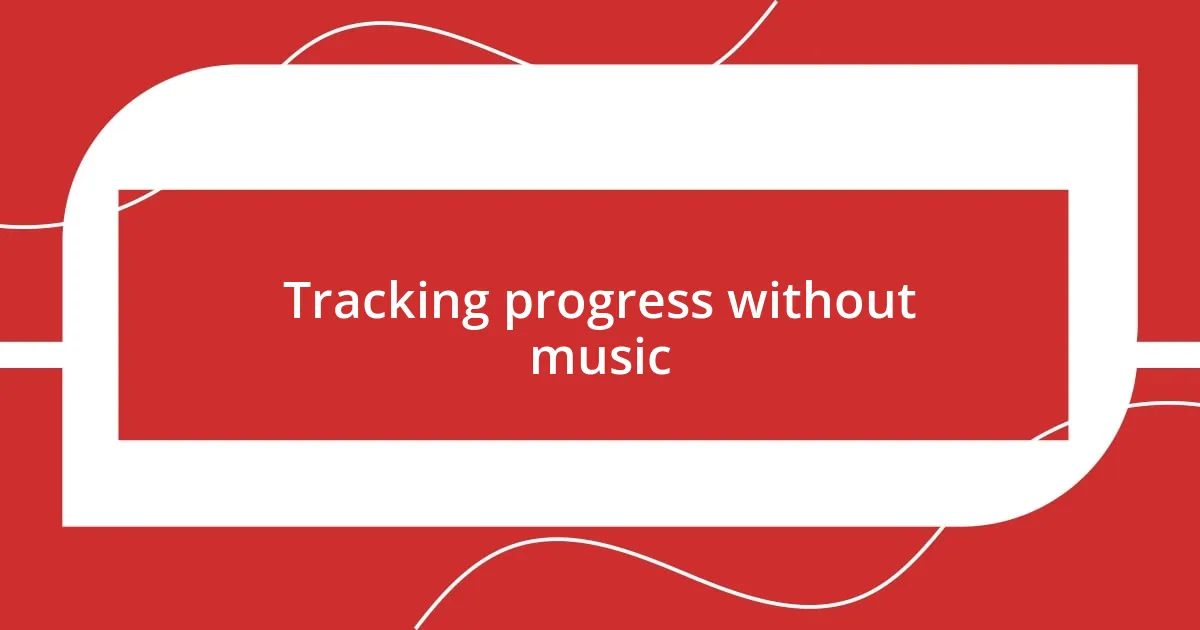
Tracking progress without music
Tracking my running progress without music has been an enlightening journey. I often use a running app to log my distances and times, and it’s fascinating to see how data can motivate me differently. Recently, I completed a six-mile route, and while I was initially focused on the time, I realized that tracking my pace allowed me to celebrate both improvements and slower days. Have you ever noticed how numbers on a screen can sometimes change your perspective?
During my runs, I also jot down thoughts and feelings in a journal afterward. This practice helps me analyze how certain runs felt compared to others, both mentally and physically. For example, I reflected on a particularly tough run plagued with self-doubt. By writing about it, I recognized that the tough days highlight the triumphs even more. Do you keep a running log? It’s a great way to connect with what your body is experiencing beyond just the distance and speed.
I’ve found that using benchmarks can elevate the experience too. Setting specific goals, like improving my mile time or completing a certain number of weekly runs, creates focus. The satisfaction of hitting those benchmarks feels just as rewarding as crossing a finish line with music blaring. It invites a healthy kind of competitiveness within myself. How do you track your progress, and how does it feel when you hit those goals?














